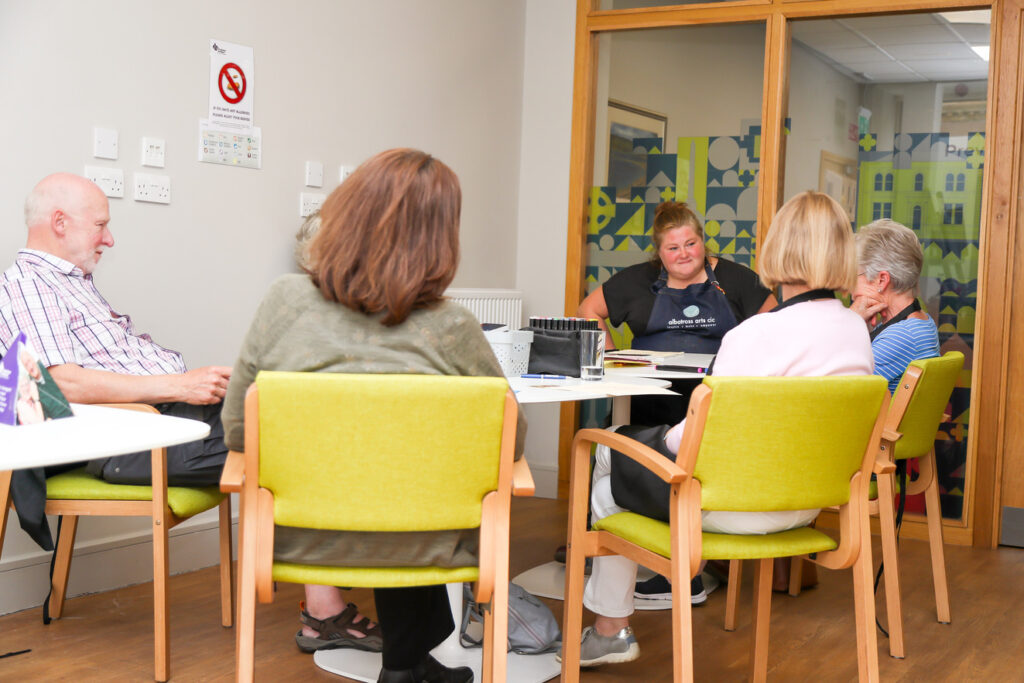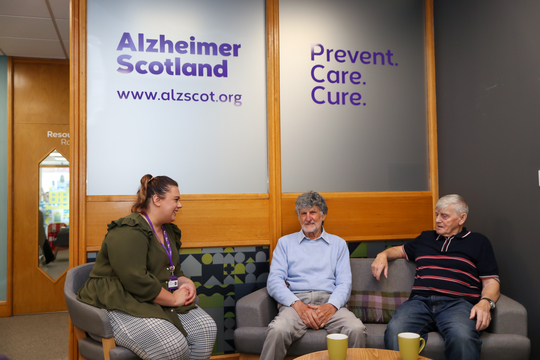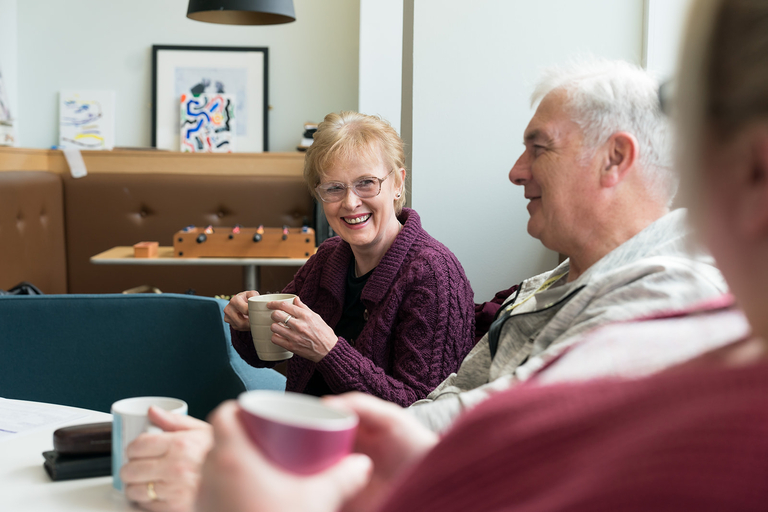Living with dementia
Everyone experiences life differently, and this means there is no set way to live your life after a dementia diagnosis.
Living well with dementia
Dementia is a progressive illness, and your symptoms will change over time, but access to the right information and support can help you to live well after your dementia diagnosis.
This page offers practical advice to help you live independently after a diagnosis and also information on where to turn when you need support.
Support with living well
A positive approach that focuses on abilities rather than limitations will make a significant difference to how you live life with dementia, but as your dementia progresses it will begin to affect more aspects of your life, as well as the lives of those that care for you.
If you do need help, don’t be afraid to ask for it. Whether it is from family and friends, professionals such as doctors and nurses, or Alzheimer Scotland, support is available for you.
Alzheimer Scotland provides services and support across Scotland and can help if you need information and advice, peer support and personalised support services, including day opportunities or activities and groups in your community.
Our network of Dementia Advisors, our Brain Health & Dementia Resource Centres, and our 24 hour Freephone Dementia Helpline, help to make sure you are not facing dementia alone.
We also have a range of information leaflets, supports and products which can help support you, your friends and your family.
Our resource booklet ‘Dementia: After diagnosis’ tries to answer some of the questions you may have after receiving a diagnosis of dementia. Each section looks at a different area of your life and suggests ways to adapt to any changes you may face
Next steps
Living with dementia can be challenging and may trigger a mixture of emotions for you and the people who care for you.
After a dementia diagnosis it is inevitable that there will be a lot for you to consider and there will be questions you want to ask.
For example, you may want to consider developing a care plan with your healthcare provider, work with a legal professional to set up powers of attorney, or identify family members, friends, or caregivers who can be your support network as the condition progresses.
The important thing to remember is that there is always help and support available. Alzheimer Scotland is proud of the work we do to make sure nobody faces dementia alone. Use the links below to learn more about living well with dementia.
Alternatively, if you want to talk to someone today, you can call our 24 Hour Freephone Dementia Helpline: 0808 808 3000
Advice for staying independent while living with dementia
Talking about your dementia and staying connected
Maintain your physical and mental health
Ensure you attend regular medical check-ups
Make sure you take adequate rest
Establish routines and consistent daily schedules
Create a dementia friendly environment at home
Review your needs, care and support options
Further support

Local workshops
Alzheimer Scotland hosts various workshops locally which provide you with information and practical solutions to help adjust to life with a dementia diagnosis. Some workshops are for people with dementia, some are for partners, families and carers and many are for both together.

Dementia Advisors
If you need information, advice or advocacy in dealing with issues related to dementia, our Dementia Advisors are here to help you. They can help with a wide range of issues such as accessing health and social care support, help with complaints, power of attorney, guardianship, and money and legal matters.

ADAM
ADAM (About Digital and Me) is a platform which will help you find the right pieces of technology to look after your health and wellbeing. Everything in ADAM’s catalogue has been tested by families living with dementia, and our expert Digital Team, to ensure that they are something that is likely to be useful.
More information
Getting a diagnosis
Learn how to get symptoms of dementia evaluated
Newly diagnosed
What are the next steps after receiving a dementia diagnosis
Types of dementia
Learn about the different types of dementia that exist
Dementia Advisors
Learn more about our National Dementia Advisor Service
Community & support
Find out what support is available in your local community
Get involved
Get involved with the support work provided by Alzheimer Scotland
Talk to us
Would you like to talk to someone about living with dementia? You can call our 24 hour Freephone Dementia Helpline on 0808 808 3000 at any time.
Our Helpline is staffed by trained volunteers. Many of the volunteers have had personal or professional experience of caring for people with dementia. The Helpline team can provide information, signposting and emotional support.
